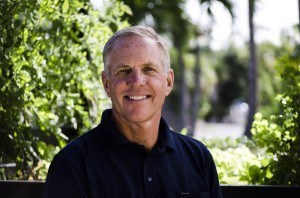Courtesy of Gary Hall Sr., 10-time World Record Holder, 3-time Olympian, 1976 Olympic Games US Flagbearer and The Race Club co-founder.
It is an exciting time in the sport of swimming with respect to technology advancement. Many new companies providing hardware (devices) and software have emerged to help coaches improve. Companies like CoachCam, Swim Hero, Firebelly, and Triton just to name a few. They have developed really great tools to help us and provide more important data than ever before. BMW is working with USA Swimming in Colorado Springs to develop new video/analytical software. That is all good news.
 The bad news is who has the time to compile all of the new data, analyze it, and perhaps most challenging, interpret how this information should improve a swimmer’s technique or performance? Unless there is a full time IT person on the staff, most coaches simply don’t have the time to coach, administer, and do all of that analysis for every swimmer’s races in each meet. That is a huge burden.
The bad news is who has the time to compile all of the new data, analyze it, and perhaps most challenging, interpret how this information should improve a swimmer’s technique or performance? Unless there is a full time IT person on the staff, most coaches simply don’t have the time to coach, administer, and do all of that analysis for every swimmer’s races in each meet. That is a huge burden.
For this reason, we believe there will be an increasing demand for technical coaches or assistants, those that make it a point to analyze and understand data and in turn, provide meaningful and helpful recommendations for a swimmer’s improvement. That is what we do at The Race Club, particularly when it comes to technique.
At The Race Club, we go well beyond simply analyzing a swimmer’s race, including: stroke rates, distance per stroke, breakout times, breathing patterns, splits, turn times etc. We have invested in some new and exciting technology from Italy (AP Labs), called Velocity Meter (VM), that measures a swimmer’s velocity, acceleration, and deceleration at each .02 seconds during the stroke cycle. Synchronized to a swimmer’s video, we can then determine peak and trough velocities, differences between peak and trough velocities for both arms (delta PT) or for pull and kick, and peak and trough accelerations and decelerations. Since most of this data is new to our sport, it has taken months to understand what data is normal or expected for a given swimmer, depending on gender, age, stroke, and technique. More important than a visual interpretation of what we believe is right or wrong through video analysis, the VM quantitates the severity of mistakes (frontal drag) with trough deceleration points, and gives us an idea of the magnitude of propulsion forces with peak acceleration levels.
Another technology that we are using at The Race Club from AP Labs is called Ben Hur, or what we refer to as the Drag/Propulsion Meter. This technology enables us to quantitate propulsive forces, active drag coefficients, and passive drag forces at each .04 seconds of the stroke cycle, synchronized to video. Most of these measurements have rarely been done, other than in research, but are now available to any swimmer at our Florida Keys location.
This month we will start using another new technology from AP Labs called a Pressure Meter, which measures the pressure (force per unit area) on the front and back of the hand throughout the pulling motion. This will enable us to determine how well a swimmer can really hold water with the pulling motion. Using a gyroscope, it can also measure the swimmer’s body acceleration in all directions and the angular or rotational velocity. Rotational velocity is a strong coupling motion, so we look forward to quantitating this important technique. This is also new information to the sport, so we will learn as we go.
Many of the new articles and videos that we feature in our new subscription service in Lanes 2, 3, and 4 have their basis in the information we derive from this new technology. We are excited to offer these to you.
Next week I am honored to be speaking for 5 hours at the ASCA World Clinic on some of the new technology of swimming and how it can help us become better coaches and produce faster swimmers. I look forward to the opportunity to share what I have learned and hope to see you in Anaheim!
Yours in swimming,
Gary Sr.

Gary Hall, Sr., Technical Director and Head Coach of The Race Club (courtesy of TRC)
Like The Race Club on Facebook
Follow The Race Club on Instagram
Follow The Race Club on Twitter
Connect to The Race Club / Gary Hall Sr. on Linkedin
[email protected]
See The Race Club HQ here.
THE RACE CLUB
Because Life is Worth Swimming, our mission is to promote swimming through sport, lifelong enjoyment, and good health benefits. Our objective is for each member of and each participant in The Race Club to improve his or her swimming performances, health, and self-esteem through our educational programs, services and creativity. We strive to help each member of The Race Club overcome challenges and reach his or her individual life goals.
The Race Club provides facilities, coaching, training, technical instruction, video, fitness and health programs for swimmers of all ages and abilities. Race Club swim camps are designed and tailored to satisfy each swimmer’s needs, whether one is trying to reach the Olympic Games or simply improve one’s fitness. Our programs are suitable for beginner swimmers, pleasure swimmers, fitness swimmers, USA swimming or YMCA swimmers, or triathletes; anyone who wants to improve swimming skills. All of our Race Club members share an enjoyment of being in the water and use swimming to stimulate a more active mind and body.
